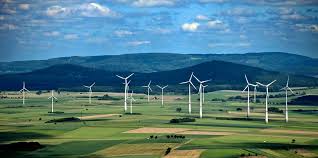“Today is a good day for the energy transition, for action on the climate and in terms of an important economic contribution to overcome the coronavirus pandemic,” said Peter Altmaier, the economy minister, at a press conference. The German environment minister, Svenja Schulze, stated in a recent tweet that the agreement is a milestone that paves the way for the country’s coal exit. Resolving the dispute over wind power distance rules and the solar cap is key to enabling Germany to expand renewable energies to reach the government’s target of 65 per cent in power consumption by 2030, laid out in the 2019 climate package. Expansion ofGerman renewable energy projects such as construction of onshore wind power, Germany’s energy transition’s most important power generation technology, fell to the lowest level in 20 years in 2019, mainly due to regulatory obstacles and local opposition. To ensure further acceptance by residents, the government’s climate cabinet last year hence decided to introduce minimum distance rules from the nearest settlement and provisions that allow municipalities to receive part of the payback from wind parks.

Leave a Reply